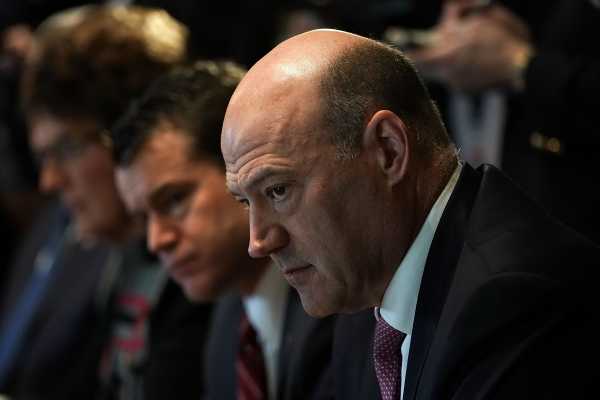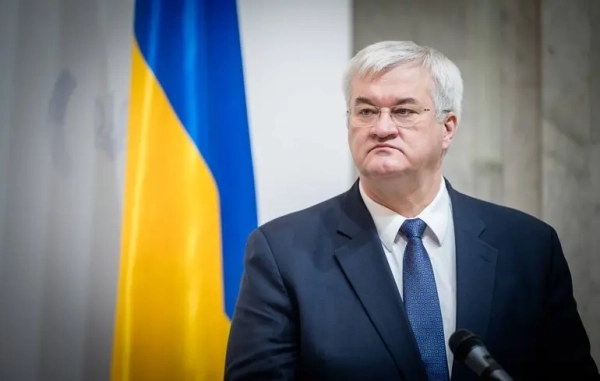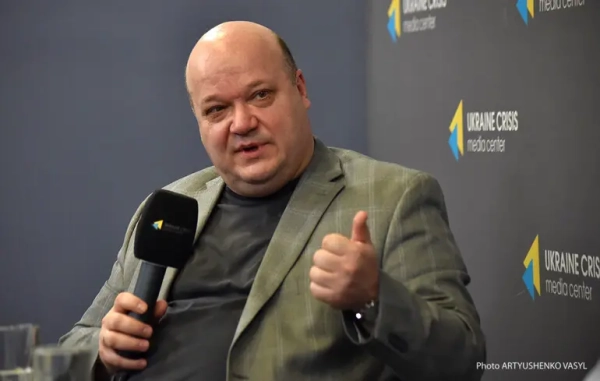
There’s a war raging in the White House over President Donald Trump’s plan to impose sweeping tariffs on steel and aluminum imports as early as this week.
White House economic adviser Gary Cohn is making a desperate final attempt to change Trump’s mind on imposing the tariffs by bringing leaders of industries that will be hurt by the tariffs to meet with the president at the White House on Thursday.
Cohn’s meeting, which will include executives from the auto industry and beverage-can manufacturers, is meant to serve as a counterweight to a meeting Trump had last Thursday, where he listened to steel and aluminum producers advocate for tariffs and then unexpectedly announced his decision to initiate them on the spot.
Cohn’s move to sway Trump is the latest volley in an ongoing battle within the administration. The conflict pits Cohn — a former Goldman Sachs executive — and other pro-free trade advisers in the administration against the hardcore America First advisers who are staunchly in favor of the tariffs.
In recent weeks, Cohn has gotten into heated arguments with White House trade adviser Peter Navarro, who appeared on the Sunday morning talk shows over the weekend to defend the tariffs and downplay any negative effects they could have on the economy.
Cohn believes that the tariffs could result in trade wars and cost more jobs than they save; while Navarro and others such as US Trade Rep. Robert Lighthizer and US Commerce Secretary Wilbur Ross think they could be an effective way to reduce the US trade deficit and revive beleaguered industries.
Before Trump’s meeting last Thursday, Cohn reportedly told White House Chief of Staff John Kelly that he’d quit if Trump ended up launching a trade war with his tariffs. Europe, Canada, Mexico, and China have all indicated that they could or will respond with tariffs against US exports in retaliation for Trump’s proposed move against their steel and aluminum shipments.
But the stakes are higher than Cohn’s career. The Cohn-Navarro showdown illustrates how Trump oversees an administration sharply divided on ideological issues that are close to his heart — a dynamic that can produce incoherence and dysfunction when it comes to actually making policy.
If Cohn does leave, it will mark a major victory for the America First wing of the White House. His absence could make it more likely that we’ll see Trump double down in the future on his nationalist instincts on how the US trades with the world.
The civil war on trade has complicated Trump’s move on tariffs
The Trump administration’s internal divisions on trade have been obvious throughout the entire rollout of these tariffs, which has been rather messy.
For example, the actual announcement of the tariffs on Thursday was confusing. As my colleague Alexia Fernández Campbell wrote at the time, the Trump administration sent mixed signals about whether or not they would be announced that day.
First, it looked like Trump was going to unveil them, then it looked like the announcement was going to be postponed, and then Trump surprised even his own advisers when he made the announcement during his meeting with steel and aluminum industry executives in what was supposed to be a “listening session.”
Because of the surprising nature of the rollout, the administration wasn’t able to notify senior officials in multiple federal agencies, State Department officials who needed to notify other countries of the drastic measures, or lawmakers on Capitol Hill.
Trump’s surprise announcement can be attributed in part to his unpredictable temperament. But it seems likely that the fierce intra-administration debates in the weeks leading up to it — which a White House aide described as “absolute chaos” — made it more likely that Trump would act impulsively without properly consulting his team or thinking through the details of the actual unveiling.
The silver lining of Trump’s abrupt announcement for opponents of the tariffs like Cohn is that it is still undergoing legal review, so there’s still some time to fight over the details. The New York Times reports that the behind-the-scenes negotiations to settle on a final version could result in the tariff announcement being delayed until next week.
It’s too early to say what Trump’s final decision on the tariffs will be. But if he does in fact impose strict ones, and Cohn does in fact resign because of it, the America First team will have scored a substantial victory.
Sourse: vox.com






